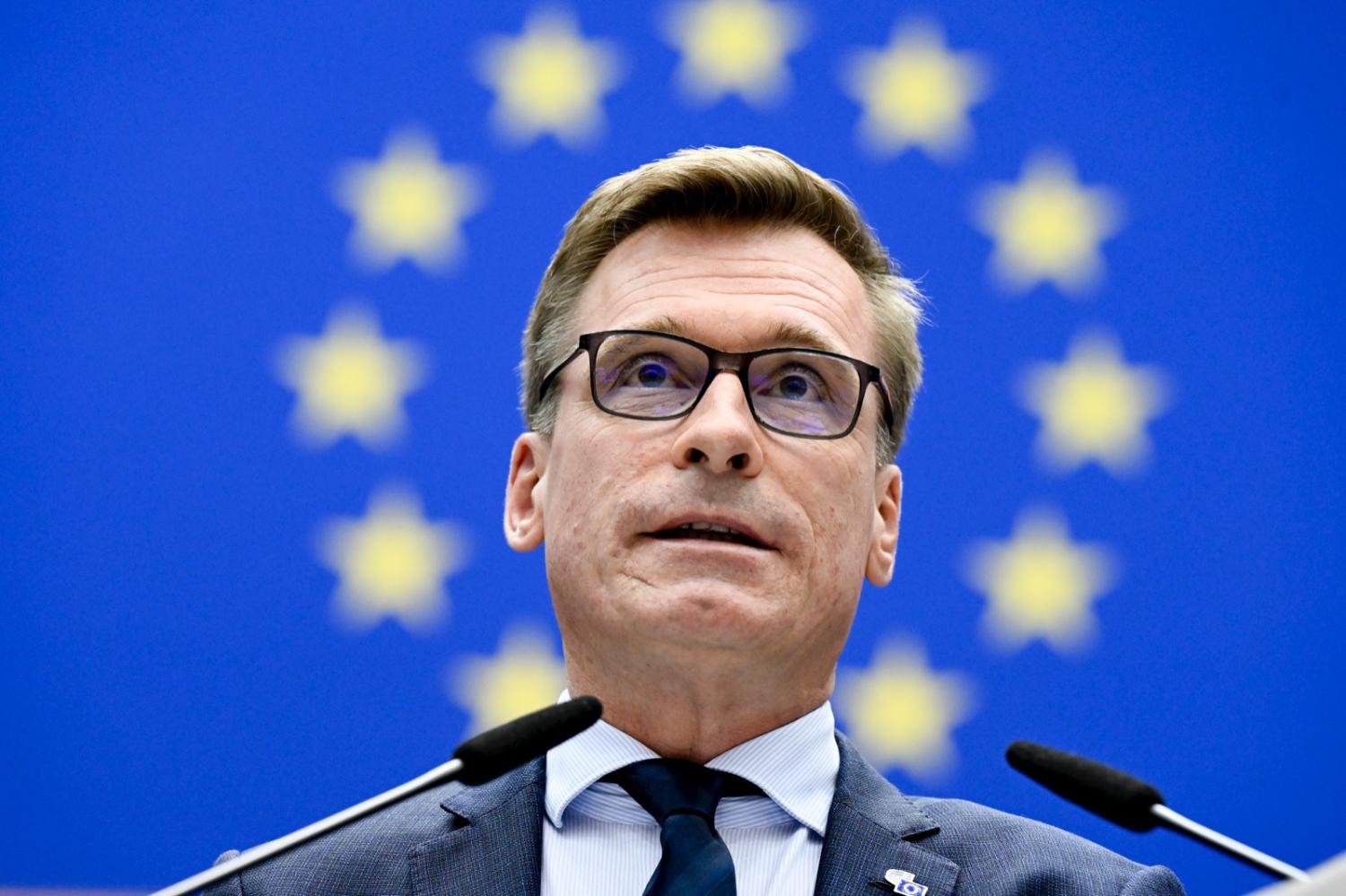EU Enlargement: A Path to Stability, Prosperity, and Democratic Resilience

Oliver Röpke, President of European Economic and Social Committee (EESC) shared his visions of EU enlargement.
As the European Union navigates global tensions and internal challenges, its commitment to enlargement proves crucial.
As the European Union navigates global tensions and internal challenges, its commitment to enlargement proves crucial. Enlargement is more than just a policy—it is an investment in stability, prosperity, and democratic resilience across Europe. We are at a historical juncture, calling for renewed energy and a bold vision for bringing Western Balkan nations into the EU.
In the context of Russia’s war of aggression against Ukraine, EU enlargement also serves a vital strategic purpose. It acts as a powerful tool for disseminating and upholding core European values, strengthens democracy, the rule of law, and human rights in candidate in candidate countries while aligning them with the EU’s social market economy. Enlargement is both a political and moral imperative for ensuring peace and stability.
I just completed my tour of the Western Balkans to meet with their civil society and political leaders, and will be soon completing the visits in the Eastern Neighbourhood after our visits to Ukraine and Moldova. My recent missions confirmed the critical role of civil society in holding governments accountable and driving forward reforms. Civil society’s engagement is indispensable for deepening democratic foundations and ensuring that the EU accession process reflects shared values. The European Economic and Social Committee (EESC) actively supports these efforts through initiatives such as the Enlargement Candidate Members (ECM) program, which brings civil society representatives from candidate countries directly into EU processes, contributing invaluable grassroots perspectives to decision-making.
However, enlargement faces substantial challenges. Both within the EU and in candidate countries, "enlargement fatigue" risks diminishing momentum. This fatigue stems from the slow pace of the accession process and can foster disillusionment. Frustration grows as the process drags on, especially in the Western Balkans, where economic disparity and brain drain are acute issues.
We must counter this fatigue head on with a renewed sense of purpose. The EU must offer a credible, merit-based pathway to membership. I have carried this message to leaders and civil society representatives alike: enlargement is not just for candidate countries; a more integrated Europe is also essential for the EU’s resilience against shared challenges like migration, economic instability, and climate change. Progress must be rewarded to maintain momentum
The active involvement of civil society organizations (CSOs) in the enlargement process is paramount. Civil society organizations (CSOs) in candidate countries are at the forefront of advocating for reforms, fostering democratic dialogue, and ensuring that citizens’ voices are heard. The EESC’s ECM initiative, launched in early 2024, brings civil society from candidate countries into the heart of EU decision-making, enriching both sides with fresh perspectives.
This initiative empowers CSOs and allows them to contribute to shaping EU policies on key issues like cohesion, labour markets, and sustainability. It also familiarizes candidate countries with the inner workings of EU institutions, preparing them for eventual membership. It is through this collaboration that we lay the groundwork for a Europe that values inclusivity and shared governance.
The enlargement process itself must become more dynamic. The current model can be slow and bureaucratic, leading to disillusionment. A more adaptable approach—gradual integration into EU structures before full membership—would help maintain momentum and create tangible progress. By adopting this step-by-step method, candidate countries can begin to participate in EU programs while adhering to rigorous standards that will fully prepare them for membership.
The EESC advocates for this pragmatic approach, which rewards reform and strengthens the EU’s credibility as a partner in the region. During my recent visits to Tirana, Skopje and Sarajevo, I emphasized that this tailored process, driven by merit and mutual benefit, is the best way forward.
On 24 October, the EESC, in cooperation with the European Commission, hosted the inaugural Enlargement High-Level Forum. Held as part of the EESC's October plenary session, this landmark event brought together over 140 civil society representatives from candidate countries, EU Commissioners, and ministers to discuss the role of civil society and social partners in driving successful enlargement. As a unique platform, the forum underscored the central role that civil society and social dialogue play in the EU accession process, which has often been overlooked.
The event highlighted the critical need for predictable and merit-based integration, where progress is consistently recognized and rewarded with a clear path to accession. By fostering collaboration with civil society, employers, and trade unions, we are laying a solid foundation for a more inclusive Europe—one that strengthens democratic principles and addresses collective challenges. Through this approach, the forum amplified a powerful message: the next European Commission must prioritize enlargement and make it a central part of its 2024-2029 agenda.
Ultimately, the enlargement process is about more than technical criteria; it is about forging a shared future grounded in common values. As political polarization and disillusionment grow, both in candidate countries and within the EU, we must sustain momentum and foster engagement. The EU must remain open to those who share its commitment to democracy, human rights, and the rule of law.
By providing sustained support for reforms, strengthening civil society and upholding a merit-based approach to enlargement, we can choreograph a more united and resilient Europe. Enlargement represents a profound opportunity for the EU to expand its values and strengthen its foundation amid global uncertainty. The enlargement process transcends mere technical criteria: it is about building a shared future grounded in common values.